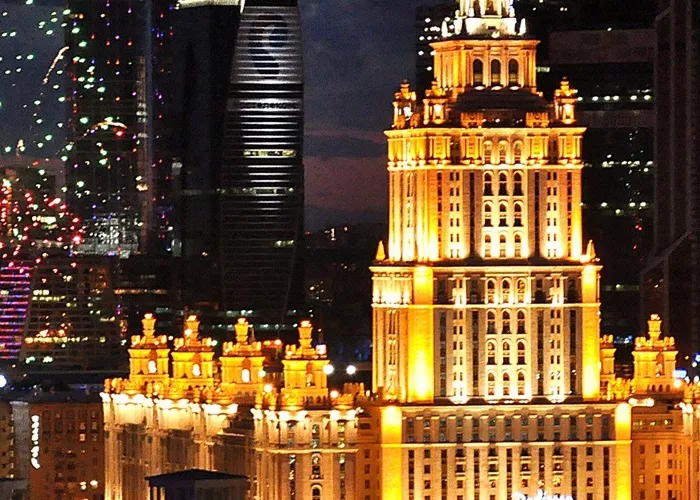Welcome to Poem of the Day – To Russia by Ivan Nikitin.
Ivan Nikitin, a Russian poet of the 19th century, is often celebrated for his poignant reflections on the nature of his homeland and the struggles of the Russian people. One of his most memorable works, “To Russia,” offers an insightful examination of the complex relationship between the poet, the country, and the nation’s destiny. In this essay, we will delve into the themes, style, and the historical context of the poem, exploring how Nikitin’s work reflects both the cultural atmosphere of his time and his personal contemplations about Russia’s future.
Historical Context and Overview
Ivan Nikitin, born in 1824, was a poet whose career flourished during a period of significant political and social unrest in Russia. The early 19th century was marked by the reverberations of the Napoleonic Wars, the rise of Russian nationalism, and the challenges posed by the autocratic regime of Tsar Nicholas I. This period also saw the emergence of a literary movement that sought to address the socio-political issues facing the nation, such as the treatment of the serfs, the growing tension between Western European influences and Russian traditions, and the question of Russia’s place in the world.
“To Russia” is a powerful work that speaks directly to the heart of these national concerns. Written in the 1850s, the poem captures the poet’s internal conflict about his relationship to the land of his birth, the people who inhabit it, and the broader questions of identity and destiny that were so pressing in Russia at the time.
To Russia Poem Explanation
At its core, “To Russia” grapples with the poet’s conflicting emotions about the country—both a deep love for the land and a simultaneous sense of despair over its struggles. The poem is suffused with a melancholic yearning, reflecting a longing for Russia’s cultural and spiritual revival, while also acknowledging the harsh realities of the nation’s suffering.
Nationalism and Patriotism
The theme of nationalism runs throughout Nikitin’s poem, and it is expressed through his deep attachment to Russia’s land and people. However, this patriotism is not blind or idealized. Nikitin does not simply glorify his country; rather, he reflects on its imperfections and the challenges it faces. He portrays Russia as a land of great potential, but one that is hindered by political stagnation, a lack of intellectual freedom, and the suffering of its peasants. Despite this, Nikitin’s tone is one of hopeful perseverance, as he believes that the strength of the Russian people—rooted in their traditional values—could eventually bring about change.
The Conflict Between East and West
One of the most compelling aspects of “To Russia” is its exploration of the tension between Eastern and Western influences in Russia. During Nikitin’s time, there was a growing debate among Russian intellectuals about whether the country should embrace Western European ideas of progress and modernization or adhere to its more traditional, Eastern roots. Nikitin navigates this divide, recognizing that Russia’s strength lies in its unique cultural identity, while also lamenting the intellectual isolation that the country experiences by distancing itself from the West.
Suffering and Resilience
Nikitin’s portrayal of Russia is fraught with imagery of suffering, both personal and collective. He invokes the image of a country in torment, with its people trapped under the weight of poverty and repression. However, amidst this suffering, Nikitin expresses a belief in the resilience of the Russian spirit. This paradox of suffering and strength is central to the poem’s emotional power. The Russian people, in Nikitin’s view, are burdened but unbowed, capable of enduring hardship while still holding onto a deep-seated hope for a better future.
Poetic Style and Structure
Nikitin’s style in “To Russia” is characterized by its use of vivid imagery and a melancholic, yet stirring tone. The poet frequently employs personification, ascribing human qualities to the land itself, which allows the reader to sense the deep, almost spiritual connection between Russia and its inhabitants. The land is not just a physical space, but a living, breathing entity, suffering alongside its people.
Nikitin’s language is rich and lyrical, with a clear sense of rhythm that heightens the emotional intensity of the poem. The use of vivid and sometimes tragic imagery—such as references to the suffering of the peasantry and the natural decay of the land—creates a powerful emotional atmosphere that draws the reader into the poet’s internal world.
The structure of the poem, though not rigid, reflects the movement between personal reflection and collective national identity. Nikitin’s verse is often free-flowing, reflecting the tension between the individual and the collective, between personal emotion and national duty. This structure complements the thematic concerns of the poem, enhancing its sense of internal conflict and the dissonance between personal desire and national obligation.
The Poem’s Reception and Legacy
“To Russia” was well-received in its time, resonating with readers who were deeply concerned with the future of Russia. The poem echoed many of the sentiments expressed by other Russian writers and intellectuals of the period, such as Alexander Pushkin, Nikolai Gogol, and Fyodor Dostoevsky, who were also grappling with the question of Russia’s future identity.
Nikitin’s work continues to be appreciated for its emotional depth and its exploration of Russia’s national soul. “To Russia” serves not only as a reflection of the poet’s personal feelings but also as a broader commentary on the Russian condition during a period of profound uncertainty.
Conclusion
In “To Russia,” Ivan Nikitin presents a deeply personal, yet universally resonant, meditation on the relationship between a poet and his homeland. Through his lyrical, evocative language and his exploration of themes such as nationalism, suffering, and the conflict between East and West, Nikitin offers a nuanced portrayal of Russia—one that acknowledges both its greatness and its flaws. The poem stands as a testament to the enduring power of the human spirit, even in the face of national and personal adversity. It remains a poignant reminder of the complex and often painful journey toward self-understanding and national identity.

